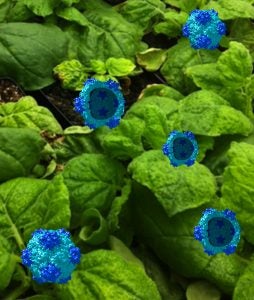Mice are tumor-free and protected from metastases after treatment
The shells of a common plant virus, inhaled into a lung tumor or injected into ovarian, colon or breast tumors, not only triggered the immune system in mice to wipe out the tumors, but provided systemic protection against metastases, researchers from Case Western Reserve University and Dartmouth College report. The scientists tested a 100-year-old idea called in-situ vaccination. The idea is to put something inside a tumor and disrupt the environment that suppresses the immune system, thus allowing the natural defense system to attack the malignancy. That something—the hard coating of cowpea mosaic virus—caused no detectible side effects, which are a common problem with traditional therapies and some immunotherapies. The team’s research is published in the journal Nature Nanotechnology.
Taking another shot
The immune system’s ability to detect and destroy abnormal cells is thought to prevent many cancers, according to the National Cancer Institute. But when tumors start to develop, they can shut down the system, allowing tumors to grow and spread. To restart immune defenses, the scientists used the tumor itself as if it were the antigen in a vaccine—that is, the target for antibodies produced by the immune system. The cowpea virus shell, with its infectious components removed, acts as the adjuvant—a substance that triggers and may enhance or prolong antigen-specific immune responses.The process and results
The researchers first switched on the immune system in mice to attack B16F10 lung melanoma or skin melanoma, leaving the mice tumor-free. When the treated mice later were injected with B16F10 skin melanoma (to re-challenge the cured mice), four out of five mice soon were cancer free and one had a slow-growing tumor. The nanoparticles proved effective against ovarian, breast and colon tumor models. Most of the tumors deteriorated from the center and collapsed. The systemic response prevented or attacked metastatic disease, which is the deadliest form of cancer.




